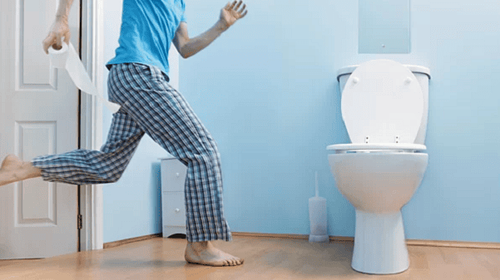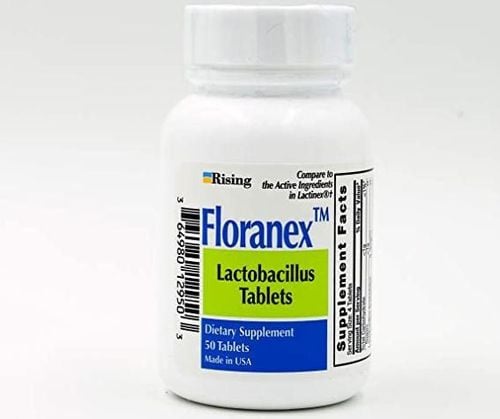This is an automatically translated article.
The article is professionally consulted by Specialist Doctor I Nguyen Hung - Department of Medical Examination & Internal Medicine - Vinmec Danang International General Hospital.
A urinary tract infection is an infection of the urinary tract caused by bacteria. There are many causes of inflammation such as from the blood or lymphatic system, nearby organs, but the most common is the invasion upstream from the urethra by bacteria, especially bacteria. intestines (E.coli,...). This is an easy disease to treat if detected early.
1. Causes of UTIs
Causes of infection in the hospital In addition to those admitted to the hospital to treat UTIs, the most common cause in the hospital is that the patient has to have a urinary bladder catheter. Common pathogens are E. Coli, Klebsiella spp., Proteus mirabilis, Staphylococci and Enterobacteriaceae bacteria.Causes of infection in the community Infection in the community is often caused by patients not cleaning properly after going to the toilet. That is, after having a bowel movement, the patient wipes from the bottom to make the bacteria in the anus go back to the urethra, also for this reason, women are more susceptible to UTIs than men. Therefore, common bacteria are Escherichia coli, Klebsiella spp. For complicated UTIs, the most common pathogens are Proteus, Pseudomonas and Enterobacter.
2. Urinary infection symptoms

2.2 Urinary frequency Normally in adults, the bladder capacity is about 300ml, when the urine volume is almost full, it causes the reflex to want to urinate. Depending on each person and the amount of water put into the body each day, on average go from 2 to 3 times a day. If you see no change in water intake but increased urination, this is also a sign of UTIs.
2.3 Painful urination This is how the patient feels. They feel discomfort, burning in the urinary tract before, during and after urinating. Patient discomfort, do not sit still. Children often cry and cry, this is a sign that helps parents detect their child's illness. Dysuria is often accompanied by urinary incontinence.
This is also an objective assessment of the patient. The patient urinates several times a day. The amount each time is very small, from a few drops to several ml. You don't feel comfortable after urinating, but after a short time, you feel like you want to urinate but you can't pass a drop.
The cause of painful urination, the need to urinate is due to the bladder being stimulated by inflammatory factors, or the passing urine irritates the inflamed tissues causing pain.
2.4 Urinary incontinence, enuresis Urinary incontinence is a medical condition in which the patient does not take the initiative in urinating, urine leaks out on its own and you do not realize to go to the toilet. Bedwetting is urinating when you are sleeping and you don't know you're urinating. The reason is that the bladder is inflamed, so it is too sensitive to tension, the sphincter of the bladder automatically opens, allowing the water in the bladder to flow out on its own. 2.5 Lower abdominal pain (lower abdomen) There are many causes of lower abdominal pain, one of which is a urinary tract infection. Symptoms are usually dull, intermittent pain. Therefore, this sign is often overlooked. If you have dull abdominal pain and are accompanied by the above symptoms, you need to see a urologist so that the doctor can examine and give the most suitable treatment for you.

3. Prevention of urinary tract infections
Urinary tract infections are common, but not difficult to treat and easy to prevent. To prevent the disease, you should keep the genitals clean, change tampons regularly when your period comes, use condoms is also a measure to prevent sexually transmitted diseases.In addition, you should drink a lot of water at least 1.5 liters per day to help dilute the urine and remove bacteria through the urine. Also, you should not hold your urine, urine is stagnant, creating an environment for bacteria to grow. You should also limit wearing tight clothes, which do not absorb sweat because dampness is an ideal environment for bacteria to grow.
When you have had the above symptoms, you should go to a clinic or hospital that specializes in urology to examine and advise on your condition. You should not use the medicine without your doctor's prescription.
At Vinmec International General Hospital, there is a Urinary Pathology Screening Package with many utilities, including: Early detection of possible urinary diseases. Especially prostate diseases (benign prostatic hypertrophy, prostate cancer). The pathology of urinary stones .... thereby helping customers take preventive measures.
When registering for the urological screening package, customers will be examined by a urologist, ultrasound, urine culture... to detect the disease accurately and promptly.
Please dial HOTLINE for more information or register for an appointment HERE. Download MyVinmec app to make appointments faster and to manage your bookings easily.














